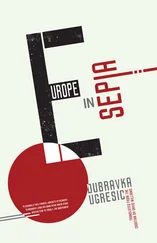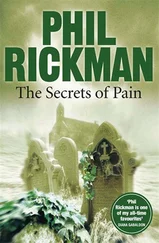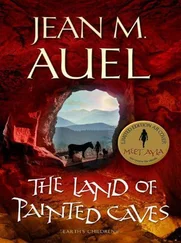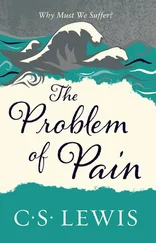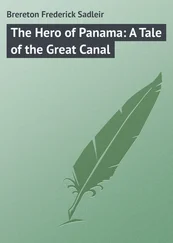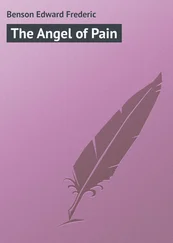“Isn’t that a bit contradictory?”
“What do you mean?”
“How can a country be both hypocritical and boring?”
“Only Holland has that distinction.”
“And I thought East Europeans were the masters of self-deprecation.”
“No, that’s another of our distinctions. Only don’t let us fool you. We don’t mean it. We actually have the highest opinion of ourselves. It’s colonial arrogance. We’ve let the colonies go, but held on to the arrogance. You’ll see…”
He glanced at his watch, stood up, and said, “Look, come and see me whenever you feel like it. We can go somewhere for coffee. Last door on the left, the smallest office on our floor. Yours is a lot bigger. You’re from the former Yugoslavia. You’re higher on the scale than us Czechs.”
“In what sense?”
“You’ve got nationalism, war, post-Communism. And we’re up to our necks in it all at the Hague.”
“Unfortunately.”
“And what a wonderful country it was! Dubrovnik is the most beautiful city I’ve ever seen! I’ll never understand how it happened.”
“You don’t think I do.”
“Of course not…. But when you stick a knife in somebody’s stomach, you raise such a racket that the whole world knows. We do it on the q.t. We don’t want people to know, and even our victims are grateful…. But we’ll talk again. Glad to have met you.”
He started off, then turned back at the door.
“That island off the Dalmatian coast foreigners can never pronounce….”
“Krk.”
“Right. Does the name mean ‘neck’?”
“Neck? No. ‘Neck’ is vrat . Why do you ask?”
“Because that’s what it means in Czech. And Czechs like to torture foreigners with the sentence Str  prst skrz krk .”
prst skrz krk .”
“And what does that mean?”
“‘Stick your finger through your neck,’” he laughed, giving a demonstration on himself. Then, with a wave, he turned again and strode down the corridor.
The fifth floor was always so deserted that I gave up feeling like a stowaway. I also gave up asking the secretary questions and knocking at Draaisma’s door. I did, however, pop in on Wim three times. His office was in fact smaller than mine. Each time he told me he happened to be very busy, and each time he pressed a signed offprint of an article he had written into my hand — by way of consolation, I presume. The first was about Karel Capek’s Letters from Holland , the second about misogyny in Kundera’s novels, the third about “linguistic hedonism” in the prose of Bohumil Hrabal.
We never did go out for coffee. My only “live” contact at the Department remained the plump Russian lecturer, the one with the invisible sandwich in her hand. Whenever I walked past her office, she would swallow the invisible morsel and utter her timid “Zdravstvuite.”
All things considered, the Department made a depressing impression on me, which impression was only heightened by the suspicion that the local Slavists were typical of West European Slavists. West European Slavists were wont to enter the field for emotional reasons: they had fallen in love with one of those exotic East bloc types. Or they would cement their choice of field after the fact with a politically, culturally, professionally, sentimentally correct marriage. There was another factor involved: the field made them absolute lords over minor, out-of-the-way, language-and-literature fiefdoms into which no one had ventured theretofore, which made the probability of their competence being adequately evaluated statistically insignificant. Though I should have been the last to condemn them, given that I owed my position to the fact that I happened to know Ines, who happened to have married Draaisma, who happened to be chair of the Department.
ANA: THE PLASTIC BAG WITH THE RED, WHITE, AND BLUE STRIPES
It was just a plastic carry-all. What made it special was that it had red, white, and blue stripes. It was the cheapest piece of hand luggage on earth, a proletarian swipe at Vuitton. It zipped open and shut, but the zip always broke after a few days. When I was a child, I used to wrack my brains over how they managed to get the cherries or other fillings into chocolates without a hole or a seam. Now I wrack my brains over another childish question: who designed the plastic bag with the red, white, and blue stripes and sent it out into the world in a million copies?
The plastic bag with the red, white, and blue stripes looked like a parody of the Yugoslav flag (Red, white, and blue! We shall e’er be true!) minus the red star. The first time I ever saw one, I think, was at a flea market. The Poles would bring their cheap Nivea cream, linen dish towels, camping tents, inflatable mattresses, that kind of thing. If I had asked the Poles, I am sure they would have said they got them from the Czechs. The Czechs would have said, No, we don’t make them; we got them from the Hungarians. No, the Hungarians would have said; we got them from the Romanians. No, they’re not ours, the Romanians would have said; they’re Gypsy-made.
In any case, the plastic bag with the red, white, and blue stripes made its way across East-Central Europe all the way to Russia and perhaps even farther — to India, China, America, all over the world. It is the poor man’s luggage, the luggage of petty thieves and black marketeers, of weekend wheeler-dealers, of the flea-market-and-launderette crowd, of refugees and the homeless. Oh, the jeans, the T-shirts, the coffee that traveled in those bags from Trieste to Croatia, Bosnia, Serbia, Romania, Bulgaria…. The leather jackets and handbags and gloves leaving Istanbul and oddments leaving the Budapest Chinese market for Macedonia, Albania, Bosnia, Serbia, you name it. The plastic bags with the red, white, and blue stripes were nomads, they were refugees, they were homeless, but they were survivors, too: they rode trains with no ticket and crossed borders with no passport.
When I ran across one in a Turkish shop here in Amsterdam, I snapped it up for two guilders. Then I folded it in two and set it aside for safe keeping the way my mother set aside ordinary white plastic bags “because you never know when they might come in handy.” I was aware that by purchasing one of the bags I had performed a rite of self-initiation: I had joined the largest clan on earth, a clan for which the plastic bag with the red, white, and blue stripes was colors, seal, and coat of arms rolled into one. The only thing I couldn’t work out was who had unstuck the red star?
Our game derived from Ana’s symbolic bag.
“The first thing to do is what ‘our people’ used to do,” said Meliha. “Tie it up with string so nothing falls out.” You’d have thought she was describing a hedonistic ritual.
“I must say I was ashamed of ‘our people’ whenever I saw them picking up those wrecks from the luggage carousel at the airport,” said Darko.
“It bugged me, too,” said Igor. “It made me think, ‘Look at the hicks I’ve got to travel with.’ But now I think it’s cool.”
“How come?” I asked.
“You know who has the most expensive luggage in the world?”
“Madonna?”
“Nope. The Russians. The top whores and top mafiosi. That’s what turned me on to the Gypsy look: the plastic bag tied up like a tramp’s boot, the gold tooth…. And how right you were about the missing star, Ana. We’re proletarians all! The only thing is, Papa Marx is dead and buried.”
“Right on!” cried Meliha. “And turning over in his grave at this very moment.”
Читать дальше
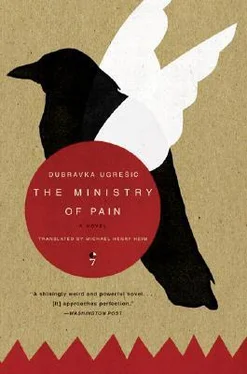
 prst skrz krk .”
prst skrz krk .”
